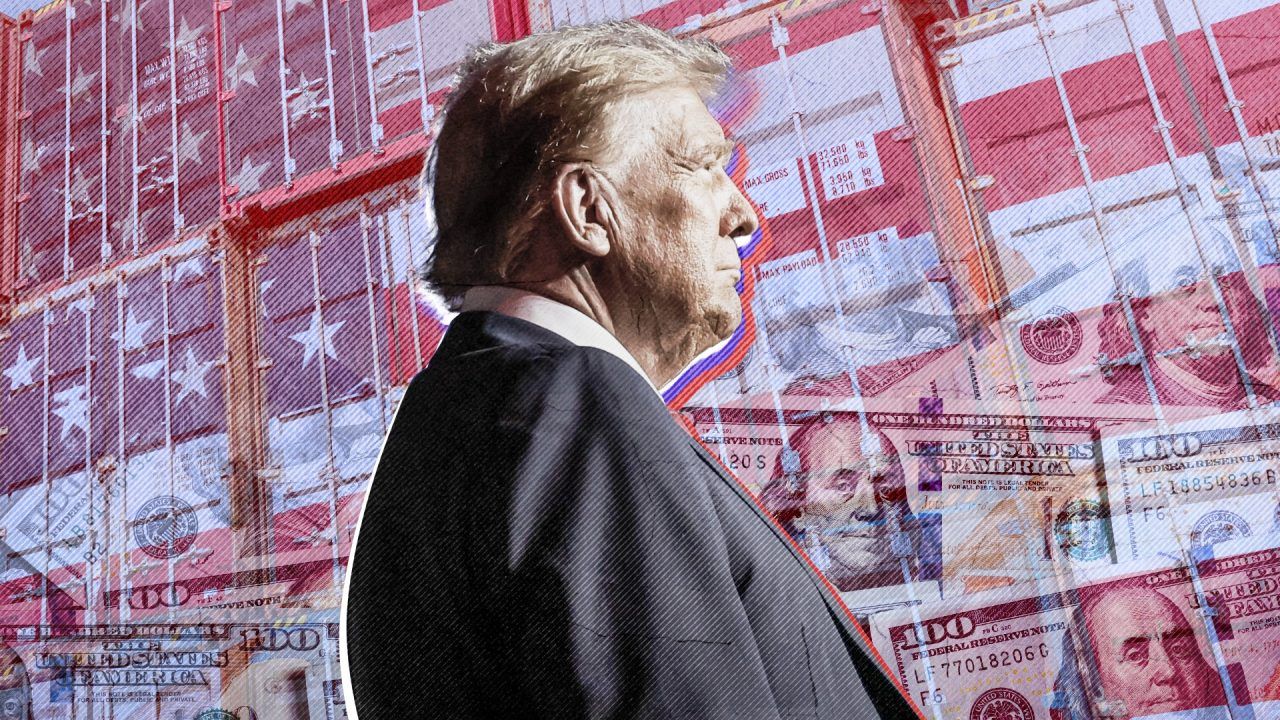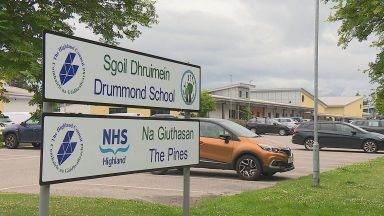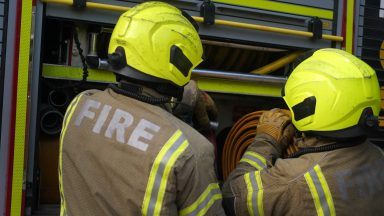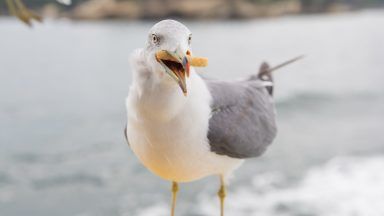With friends like these, who needs enemies?
That sums up the feeling after Donald Trump hit America’s three biggest trading partners – Canada, Mexico and China – with big tariffs.
The move risks sparking a global trade war, with Canada already imposing tariffs of its own on American goods. And the economic shock looks set to spread even further, with the EU told it will be next.
Global financial markets have plunged, and there are warnings of a hit to growth and jobs, as well as a new spike in inflation. So why is Trump doing it?
The new US President sees tariffs as a tool to get what he wants. He says his goal is to force companies to shift production back to the US from Canada, Mexico and China, to support more jobs and growth at home.
Critics say it won’t work. Instead, many economists say tariffs will drive up prices for US consumers and businesses, and cut off supply chains, hurting the American economy. But tariffs are about politics, as much as economics – and a trade war will look like tough action to some voters, even if they fail to protect American jobs.
When it comes to Canada and Mexico, Trump also believes tariffs can force action on border security out of America’s neighbours – or at least, create scapegoats for his country’s drugs and immigration problems.
And against the EU, tariffs are a way of getting European countries to pay more for their own defence, rather than rely on American military spending, as well as opening up their economies to US goods like meat, currently excluded by quality and environmental controls.
Just because it might escape tariffs for the time being thanks to being out of the EU, doesn’t mean the UK won’t be caught in the middle of a trade war.
Last night Donald Trump said the UK was “out of line” when it came to its trading relationship with the US – although he did add that Prime Minister Keir Starmer had been “very nice”, and a deal could be done for a British exemption. Could that be the start of negotiations for the UK-US trade deal that has been the prize for successive British governments since Brexit?
If so, it would mean some difficult choices ahead – the UK Government says it won’t ease food standards rules that keep American meat off supermarket shelves here, too. Washington also wants more access to the NHS for American pharmaceutical companies, another controversial prospect.
Meanwhile, Starmer is on his way to Brussels this evening, the first British leader to join an EU summit since Brexit took effect five years ago last week. He’s there to ask for a security and defence pact, but he has another tough negotiation ahead: reports from Brussels suggest the EU wants even more access to British fishing waters, something that would anger coastal communities in Scotland and across the UK, who already feel betrayed.
And of course, there’s plenty of other Scottish exports affected by the UK’s trade relationships with both the EU and US, whether they get better or worse. I’ve spoken to Scottish MPs who have made personal appeals to the new Trump administration on behalf of exporters in their constituency – and who have also met the new UK Ambassador to Washington, Peter Mandelson, to say that any US trade deal has to boost Scotland’s two biggest exports, whisky and salmon.
The Prime Minister needs more trade to boost growth, but to get it, he faces difficult choices both in Washington and Brussels. Again, with friends like these, who needs enemies.
Follow STV News on WhatsApp
Scan the QR code on your mobile device for all the latest news from around the country
























